10 States Most at Risk of Disaster
Disasters can happen anywhere and at any time.
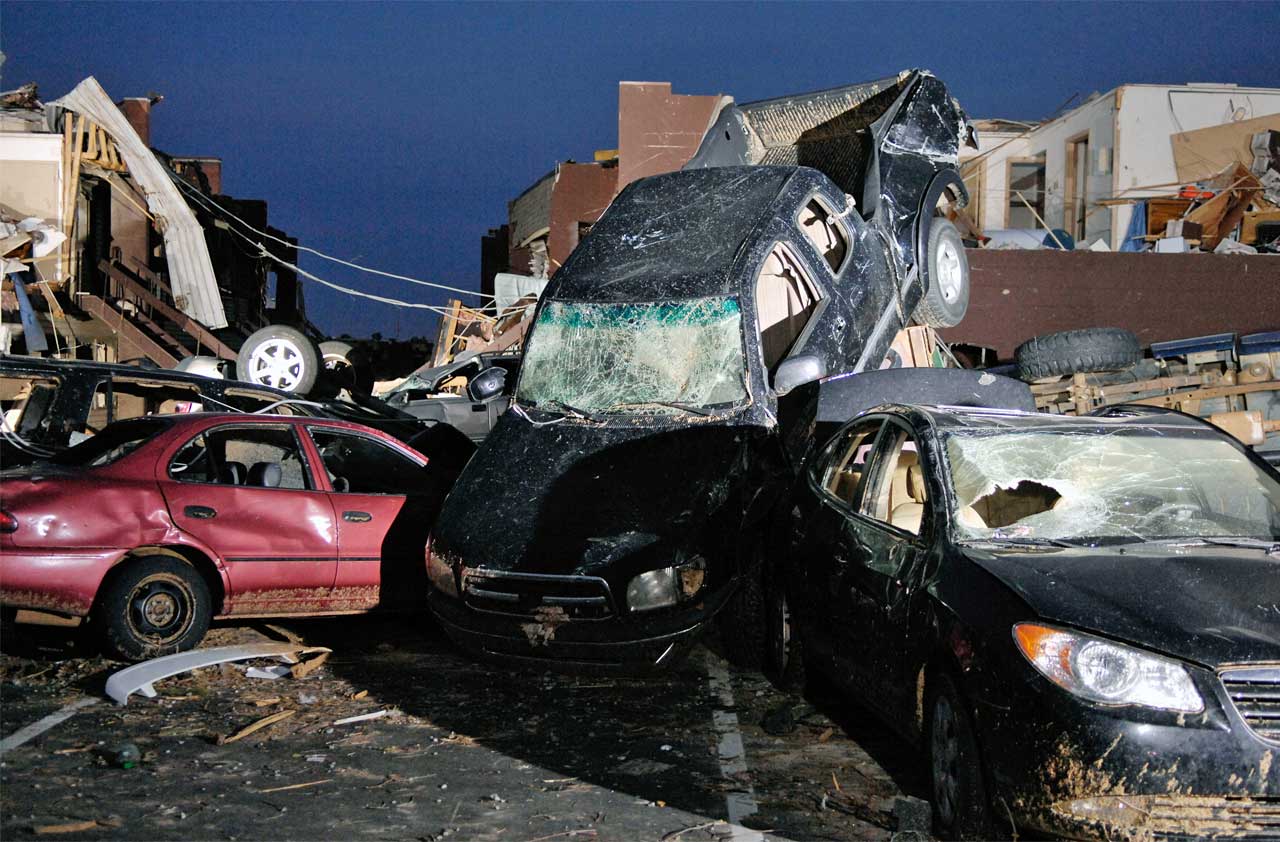
Profit and prosper with the best of Kiplinger's advice on investing, taxes, retirement, personal finance and much more. Delivered daily. Enter your email in the box and click Sign Me Up.
You are now subscribed
Your newsletter sign-up was successful
Want to add more newsletters?

Delivered daily
Kiplinger Today
Profit and prosper with the best of Kiplinger's advice on investing, taxes, retirement, personal finance and much more delivered daily. Smart money moves start here.

Sent five days a week
Kiplinger A Step Ahead
Get practical help to make better financial decisions in your everyday life, from spending to savings on top deals.

Delivered daily
Kiplinger Closing Bell
Get today's biggest financial and investing headlines delivered to your inbox every day the U.S. stock market is open.

Sent twice a week
Kiplinger Adviser Intel
Financial pros across the country share best practices and fresh tactics to preserve and grow your wealth.

Delivered weekly
Kiplinger Tax Tips
Trim your federal and state tax bills with practical tax-planning and tax-cutting strategies.

Sent twice a week
Kiplinger Retirement Tips
Your twice-a-week guide to planning and enjoying a financially secure and richly rewarding retirement

Sent bimonthly.
Kiplinger Adviser Angle
Insights for advisers, wealth managers and other financial professionals.

Sent twice a week
Kiplinger Investing Weekly
Your twice-a-week roundup of promising stocks, funds, companies and industries you should consider, ones you should avoid, and why.

Sent weekly for six weeks
Kiplinger Invest for Retirement
Your step-by-step six-part series on how to invest for retirement, from devising a successful strategy to exactly which investments to choose.
Disasters can happen anywhere and at any time. But some places experience more than their fair share of floods, tornadoes, hurricanes, winter storms and severe weather--so much so that certain locales earn frightening nicknames, such as Tornado Alley. No matter where you live, make sure you have the right kinds and necessary amounts of insurance coverage to protect your finances.
So where do these damaging events occur most frequently and severely? Kiplinger.com worked with the National Weather Service to identify the ten states that have suffered the biggest estimated property losses from disasters over the past eight years. Take a look.
Period measured is October 2006 through March 2015.
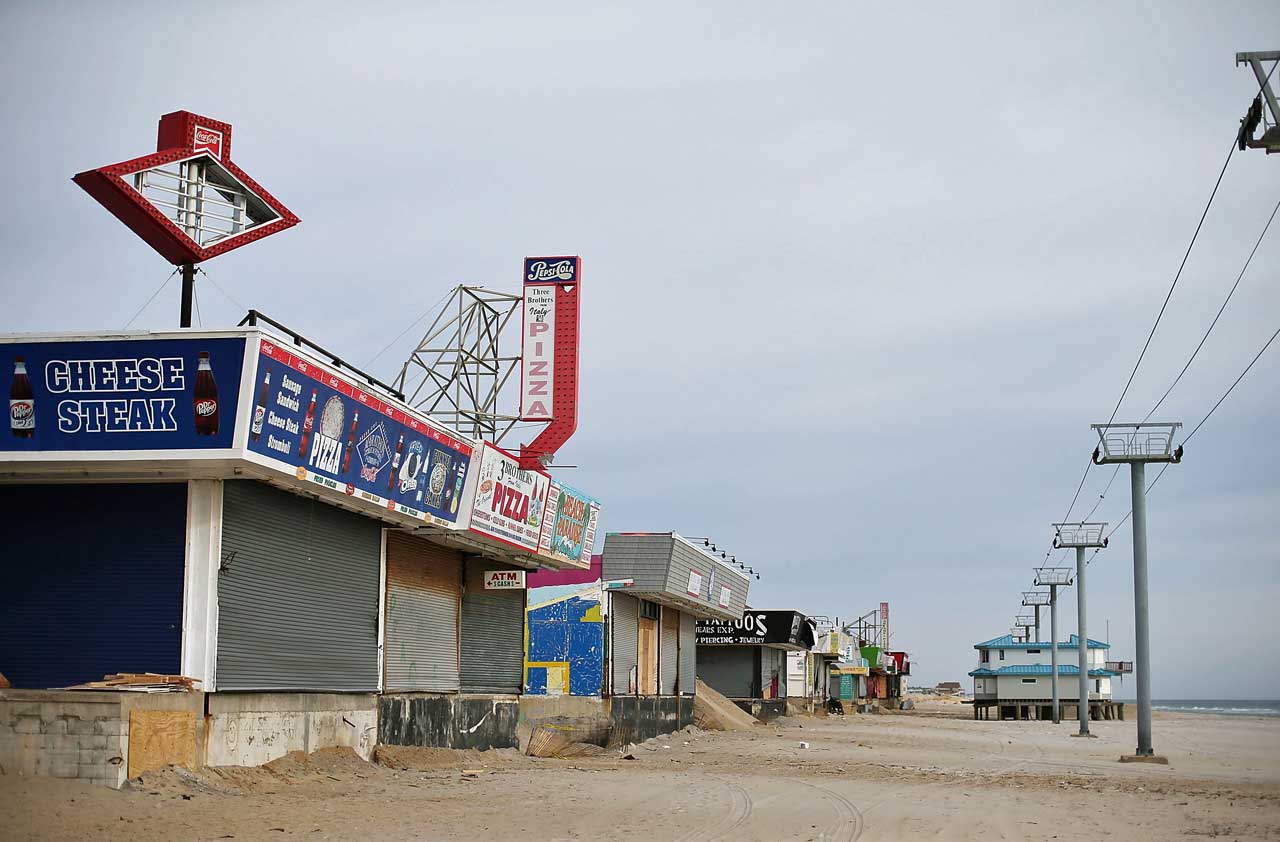
1. New Jersey
Estimated Property Damage (2006-2015): $26.4 billion
Most Frequent Disasters: powerful wind, winter storms, floods
- Most Costly Disasters: floods, powerful wind
- Homeowners who live along the coast or in areas where there are frequent storms should take steps before hurricane season begins to protect their homes and finances from damage. Here’s how to protect yourself from spring and summer storms.
Weather-Related Fatalities (2006-2015): 85
New Jersey earns the top spot on this list, in large part due to damage wrought by Sandy--which had weakened from a hurricane to a post-tropical cyclone by the time it the Jersey Shore--in October 2012. The state was among the hardest hit by Sandy, which was the second-costliest storm in U.S. history, after Hurricane Katrina. Many homes and businesses were destroyed along the Jersey Shore, and a portion of the Atlantic City Boardwalk washed away. Shortly after Sandy hit, another storm brought wet snow that caused more power outages and damage.
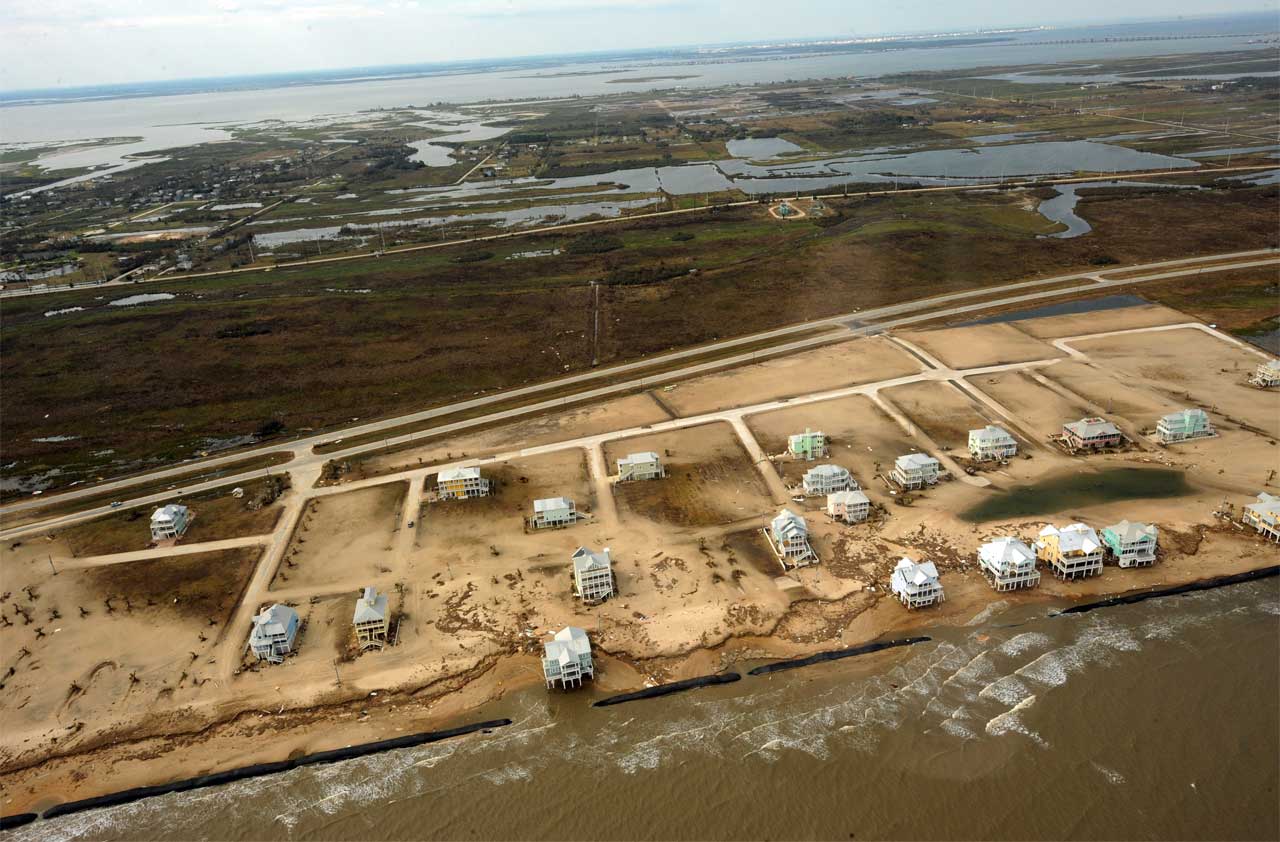
2. Texas
Estimated Property Damage (2006-2015): $24.5 billion
Most Frequent Disasters: hail, drought, powerful wind, floods
- Most Costly Disasters: storm surge/tide, hurricanes
Weather-Related Fatalities (2006-2015): 304
Severe thunderstorms and tornadoes are nearly as common as tumbleweed on Lone Star plains. Even when funnel clouds don’t touch down, hail pummels crops and cars alike. Also, cities on or near the southern coast, such as Galveston and Houston, are often in the bulls-eye of destructive hurricanes (such as Hurricane Ike in 2008) that gain strength over the Gulf of Mexico. And wildfires--such as the 2011 Bastrop fire that destroyed more than 1,500 homes--have been common due to extreme heat and drought conditions in the state over the past few years. Heavy rains this spring and summer should bring relief from fire as well as the underlying drought.
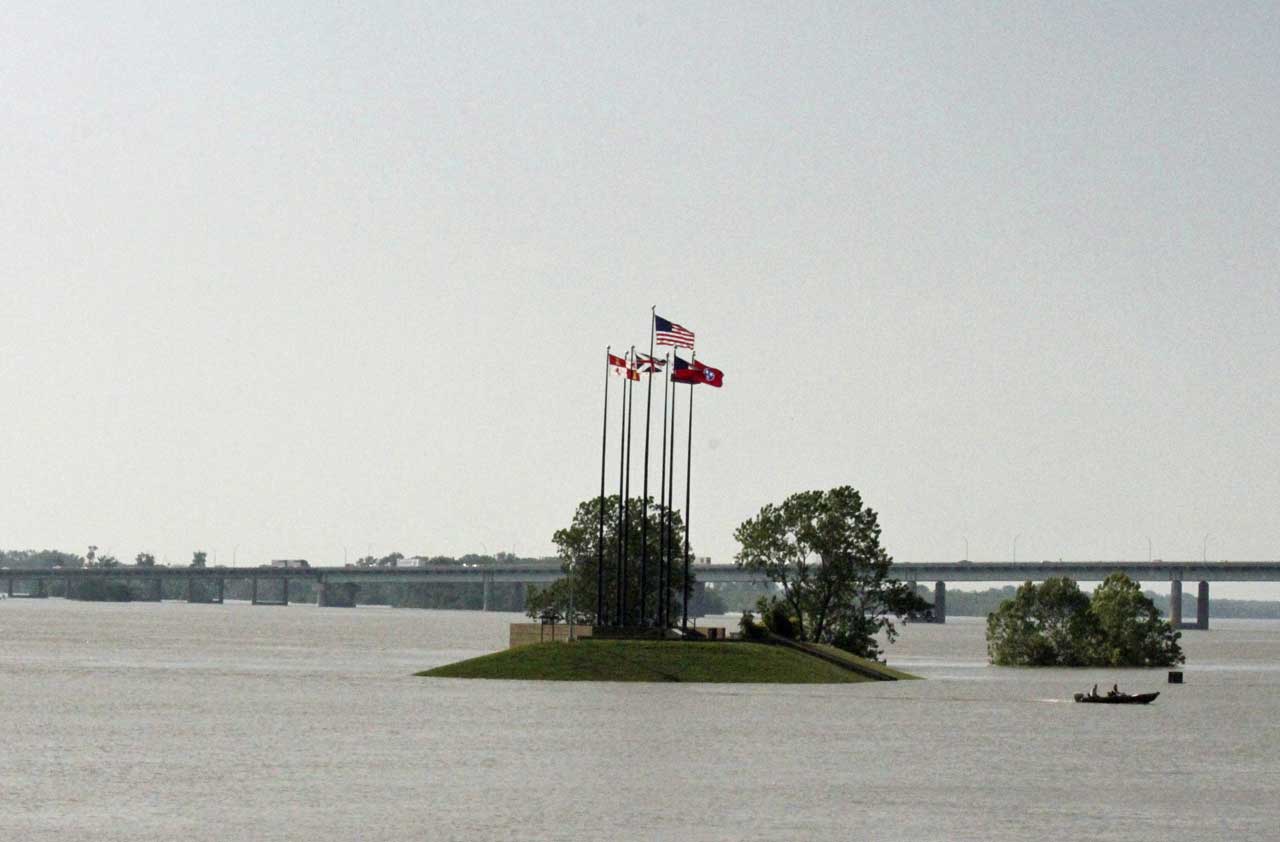
3. Tennessee
- Estimated Property Damage (2006-2015): $5.2 billionMost Frequent Disasters: powerful wind, hail, winter storms, floods
- Most Costly Disasters: floods, tornadoes
- Weather-Related Fatalities (2006-2015): 210
Severe storms and tornadoes are common in Tennessee, which was among several southern states hit by the historic “super outbreak” of tornadoes in April 2011; more damage and deaths were reported in April of 2014, as well. The state’s capital, Nashville, suffered an estimated $2 billion in damage due to flooding in May 2010, and Memphis had millions of dollars’ worth of damage when the Mississippi River flooded in the spring of 2011. Plus, Tennessee was one of the southern states bitten hard by winter storms in 2014--you may remember the one that brought nearby Atlanta to a halt.
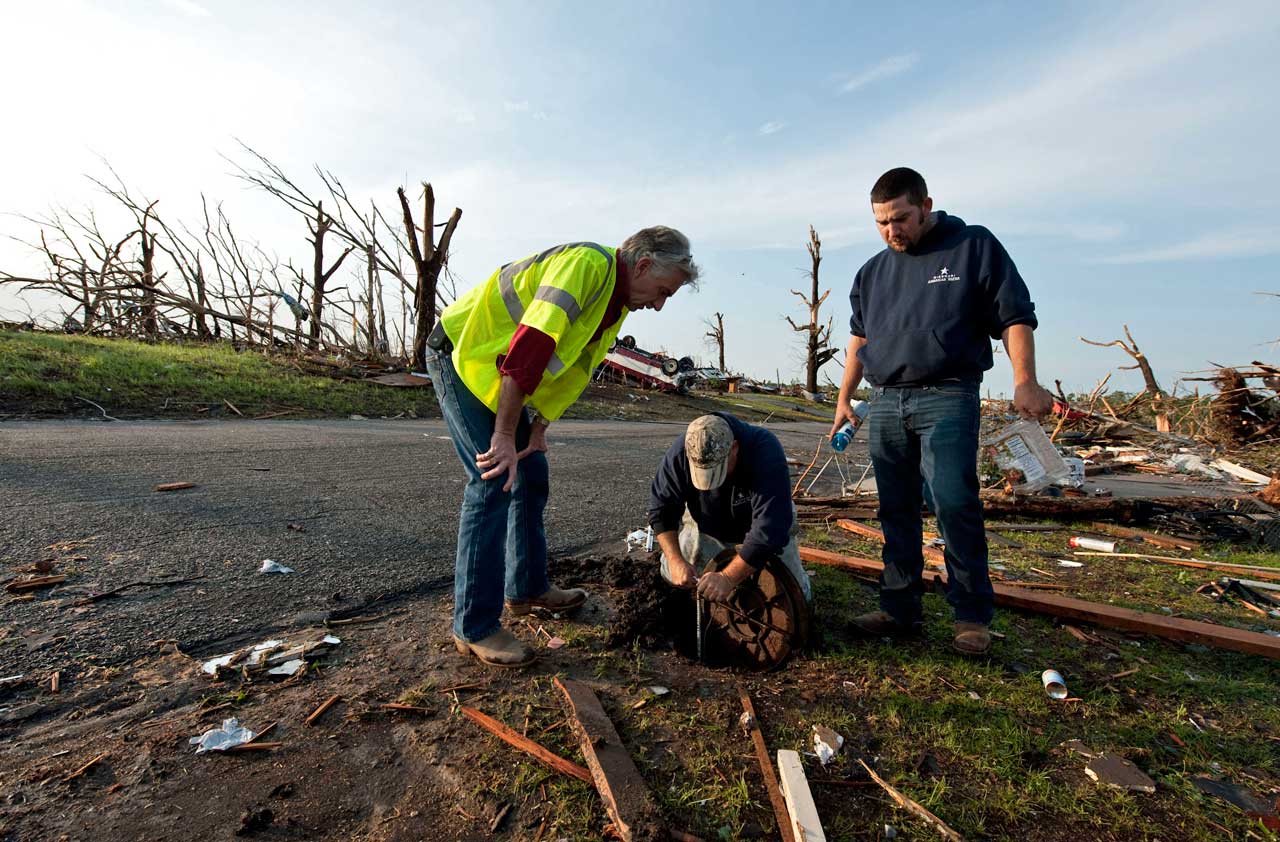
4. Missouri
Estimated Property Damage (2006-2015): $5.0 billion
Most Frequent Disasters: hail, powerful wind, floods
- Most Costly Disasters: tornadoes, winter storms
Weather-Related Fatalities (2006-2015): 331
The tornado that swept through Joplin on May 22, 2011, was one of the deadliest in U.S. history (158 deaths) and generated $2.2 billion in insurance claims, according to an Insurance Information Institute analysis of data from ISO’s Property Claims Service.
If a tornado strikes where your live, follow these seven steps to speed up the insurance claims process.
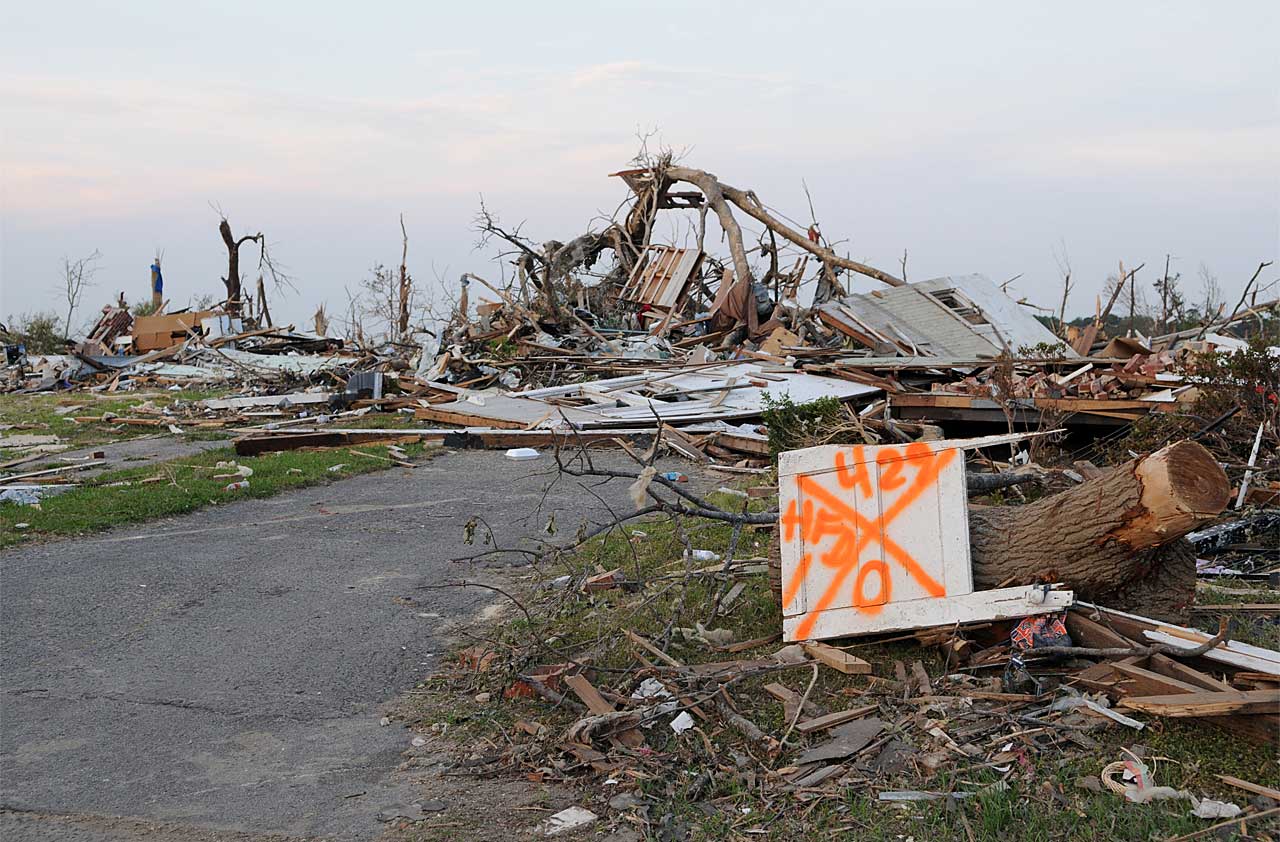
5. Alabama
Estimated Property Damage (2006-2015): $4.9 billion
Most Frequent Disasters: powerful winds, hail, drought, floods
- Most Costly Disasters: tornadoes, powerful wind
Weather-Related Fatalities (2006-2015): 343
Alabama has suffered the most weather-related deaths in the last eight years of any American state. Alabama was hit hard by tornadoes in April 2011, especially in Tuscaloosa and Birmingham, where more than 120 people were killed. In fact, the Yellowhammer State is second only to Oklahoma for the number of EF5 tornadoes (the largest in intensity and area) that have struck there.
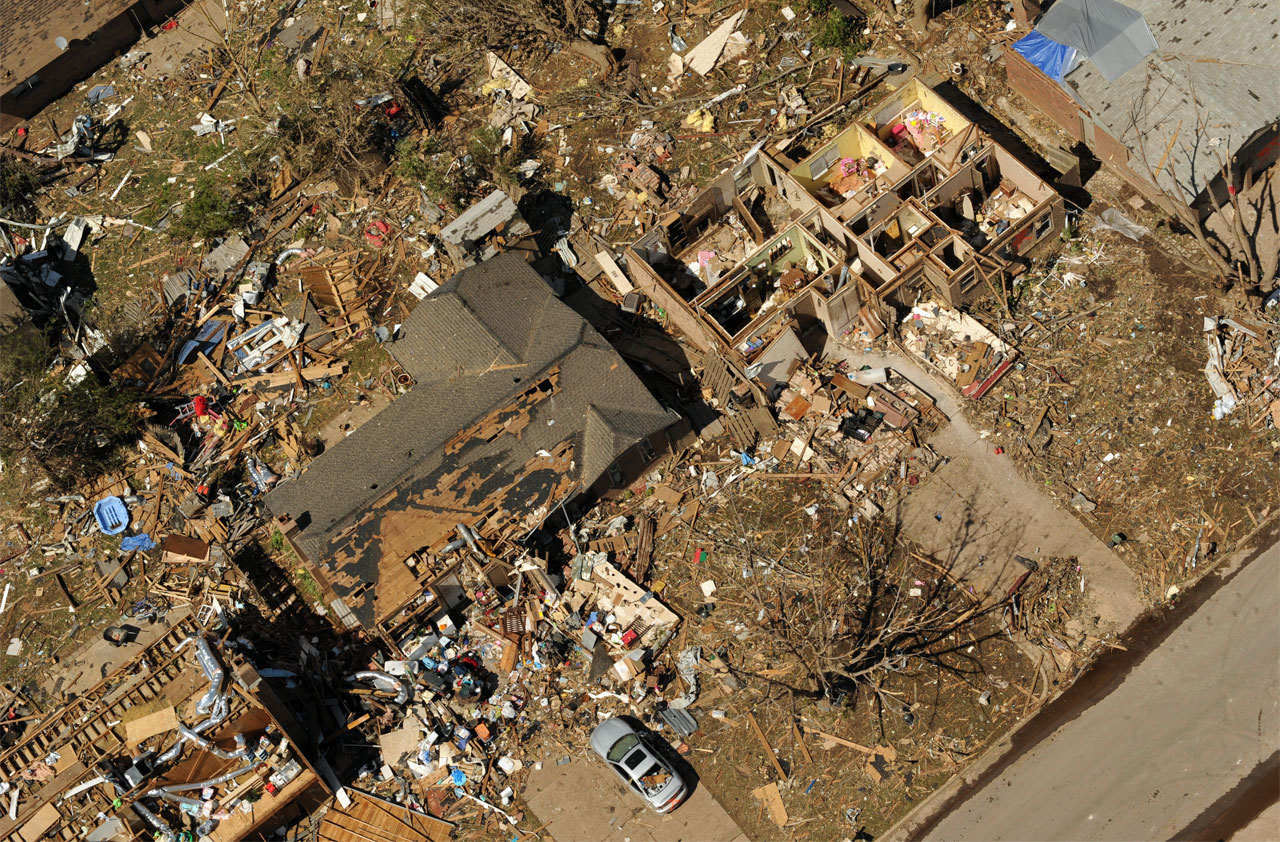
6. Oklahoma
Estimated Property Damage (2006-2015): $4.5 billion
Most Frequent Disasters: hail, thunderstorms, drought, floods
- Most Costly Disasters: tornadoes, ice storms
Weather-Related Fatalities (2006-2013): 143
The Sooner State has another moniker: Tornado Alley. A massive EF5 tornado devastated Moore, Okla. (pictured left), on May 20, 2013, and the widest tornado on record hit El Reno, Okla., just 11 days later. Severe storms and twisters are so much a part of the state's weather that the National Severe Storms Laboratory and the National Weather Service’s Storm Prediction Center are located here.
Homeowners in tornado-prone states should set aside an emergency fund and take photos of all valuables in preparation for an insurance claim (in addition, of course, to safety measures like a shelter).
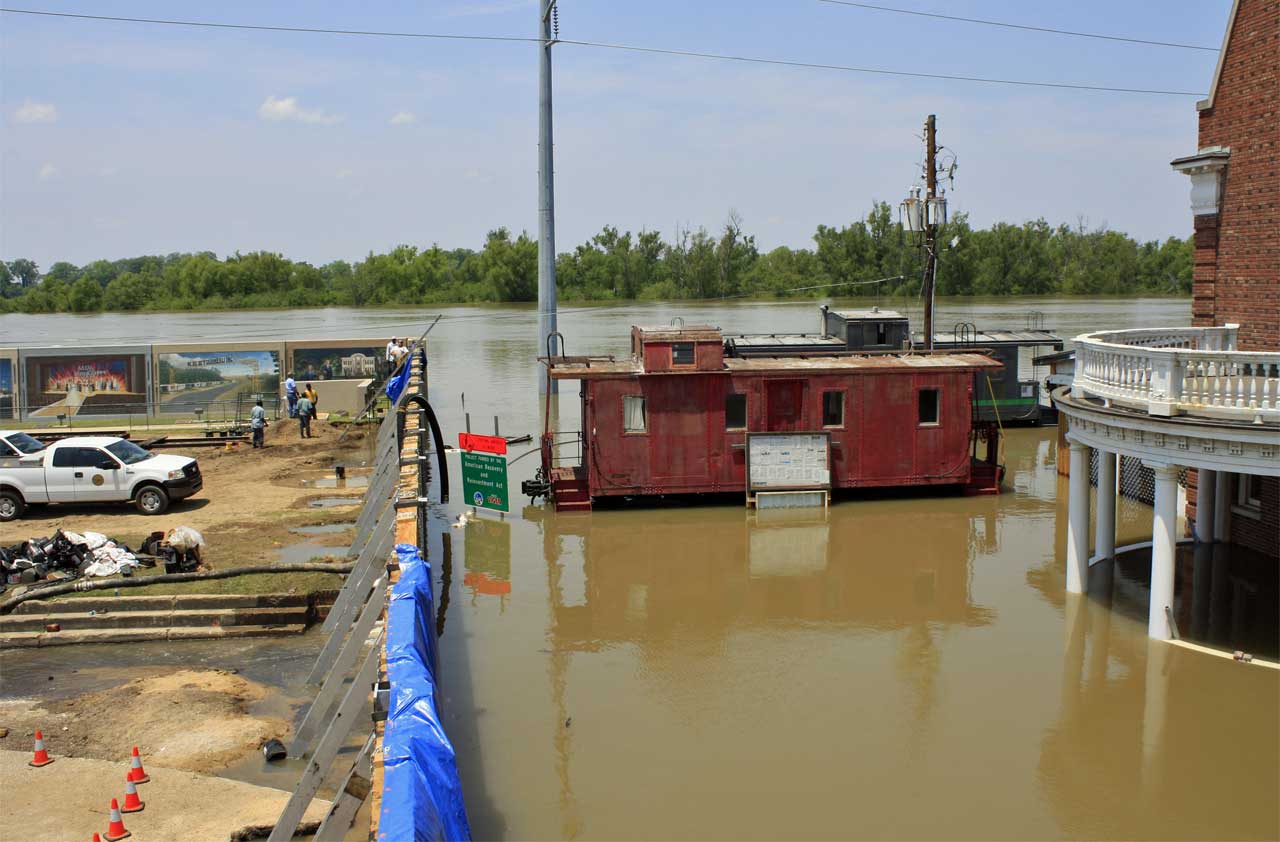
7. Mississippi
Estimated Property Damage (2006-2015): $4.4 billion
Most Frequent Disasters: thunderstorms, hail, tornadoes, floods
- Most Costly Disasters: floods, tornadoes
Weather-Related Fatalities (2006-2015): 113
Mississippi frequently is hit by tornadoes and severe storms – twisters killed 16 in 2014 alone . It also has been in the path of several hurricanes--most recently Hurricane Isaac in 2012--that have caused extensive flooding. And don’t forget the river of the same name that runs through the state. Although homeowners insurance covers damage due to wind, it doesn’t cover flood damage. You have to purchase a policy through the National Flood Insurance Program. For more information, see Protect Your Home With Flood Insurance.
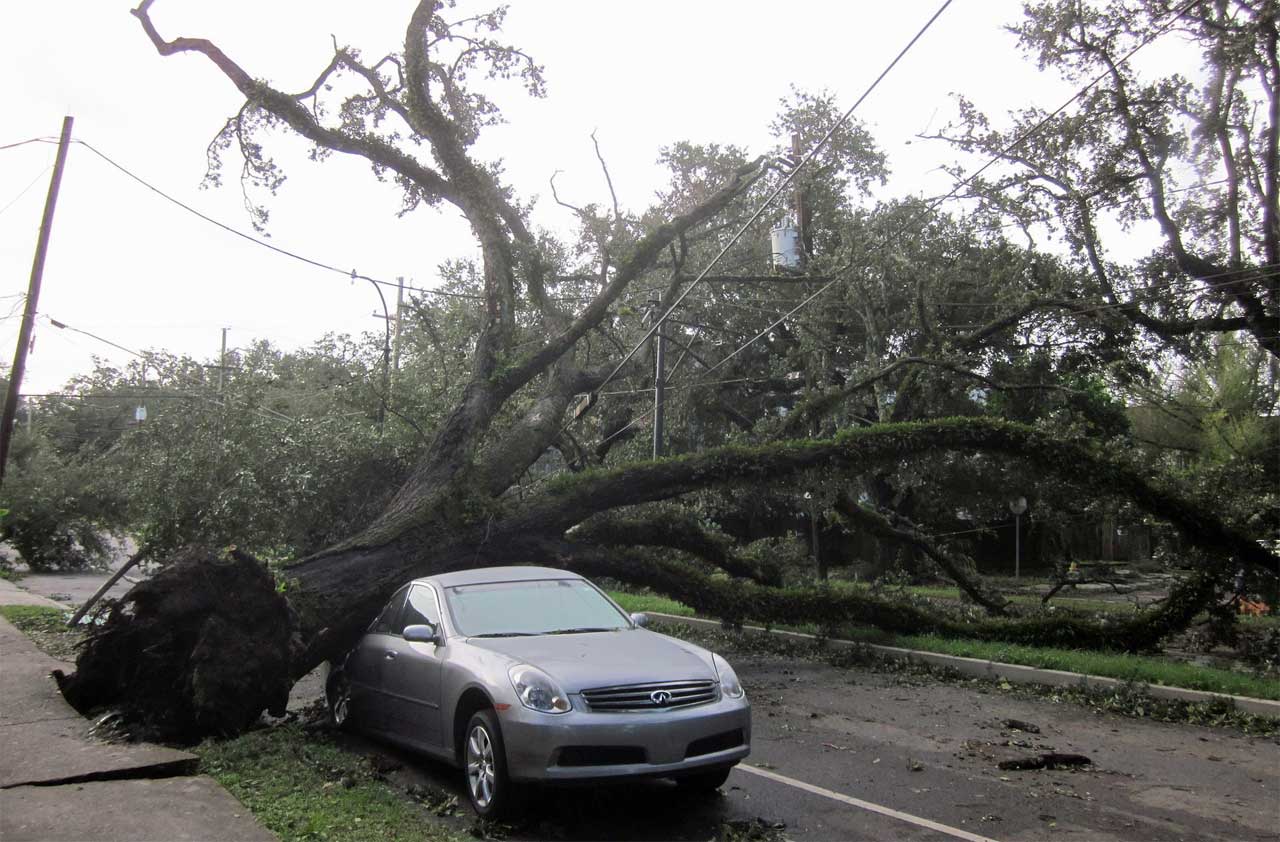
8. Louisiana
Estimated Property Damage (2006-2015): $3.7 billion
Most Frequent Disasters: powerful wind, hail, floods, tornadoes
- Most Costly Disasters: storm surge/tide, hurricanes
Weather-Related Fatalities (2006-2015): 72
Note that our recording period begins after the costliest disaster in U.S. history: Hurricane Katrina, which devastated low-lying Louisiana in 2005. Louisiana again suffered flooding when Hurricane Isaac hit in 2012, though losses of life and property were thankfully only a shadow of Katrina. If you live in a flood-prone area, don’t wait until storm clouds gather to buy a flood policy; typically, there’s a 30-day waiting period before premiums take effect.
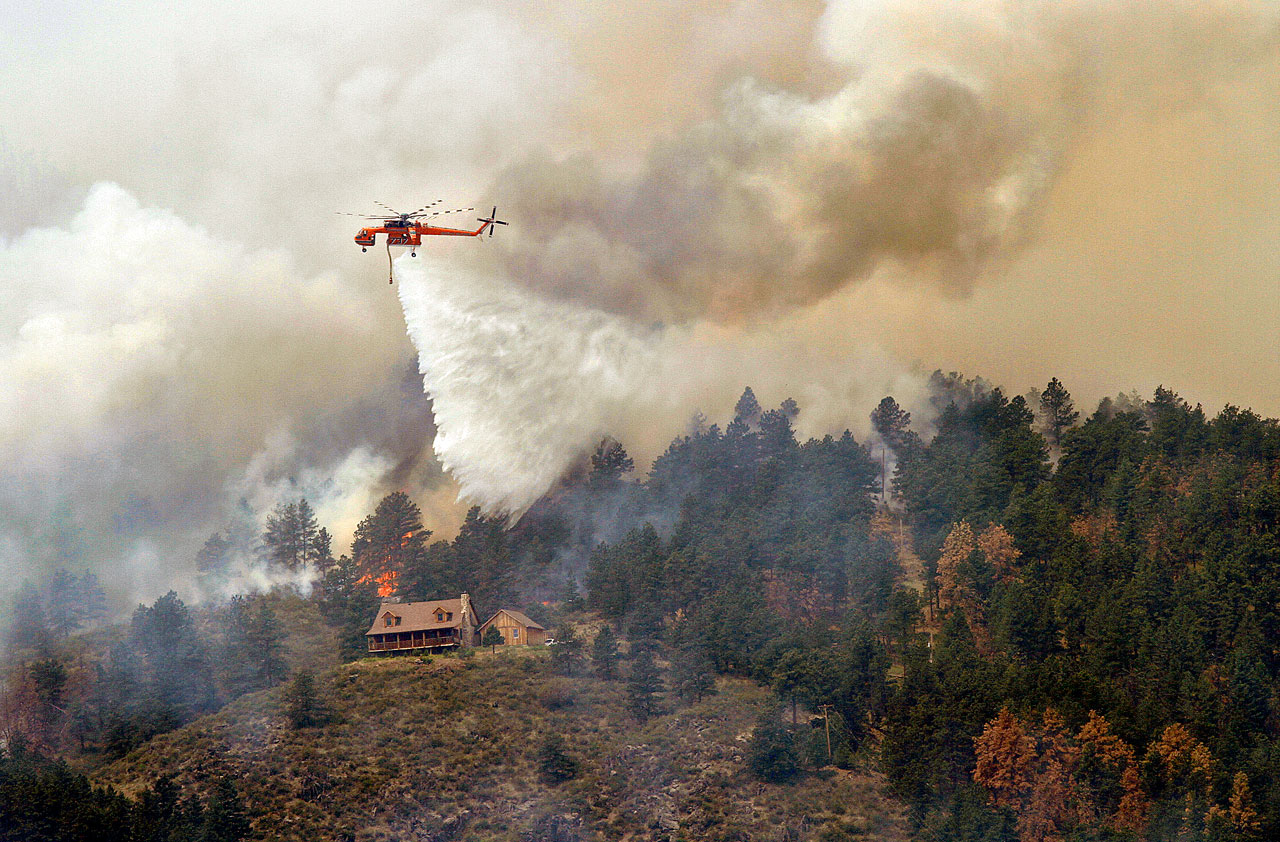
9. Colorado
Estimated Property Damage (2006-2015): $3.6 billion
Most Frequent Disasters: winter storms, hail, drought
- Most Costly Disasters: hail, wildfires
Weather-Related Fatalities (2006-2015): 78
Record rainfall during September 2013 led to floods that killed nine people and caused widespread destruction in several Colorado cities, according to the National Climatic Data Center. The Centennial State also suffered the most damages among western states where wildfires broke out in the summer of 2012. If you live in a state where wildfires are common, it’s important to know what your homeowners policy covers and the difference between assessed value and actual replacement value. Too many people learn only after a fire that they were underinsured.
But the most common weather-related cause of death in Colorado is neither fire nor water (at least, not in liquid form): It’s avalanches, which killed 41 during our measuring period.
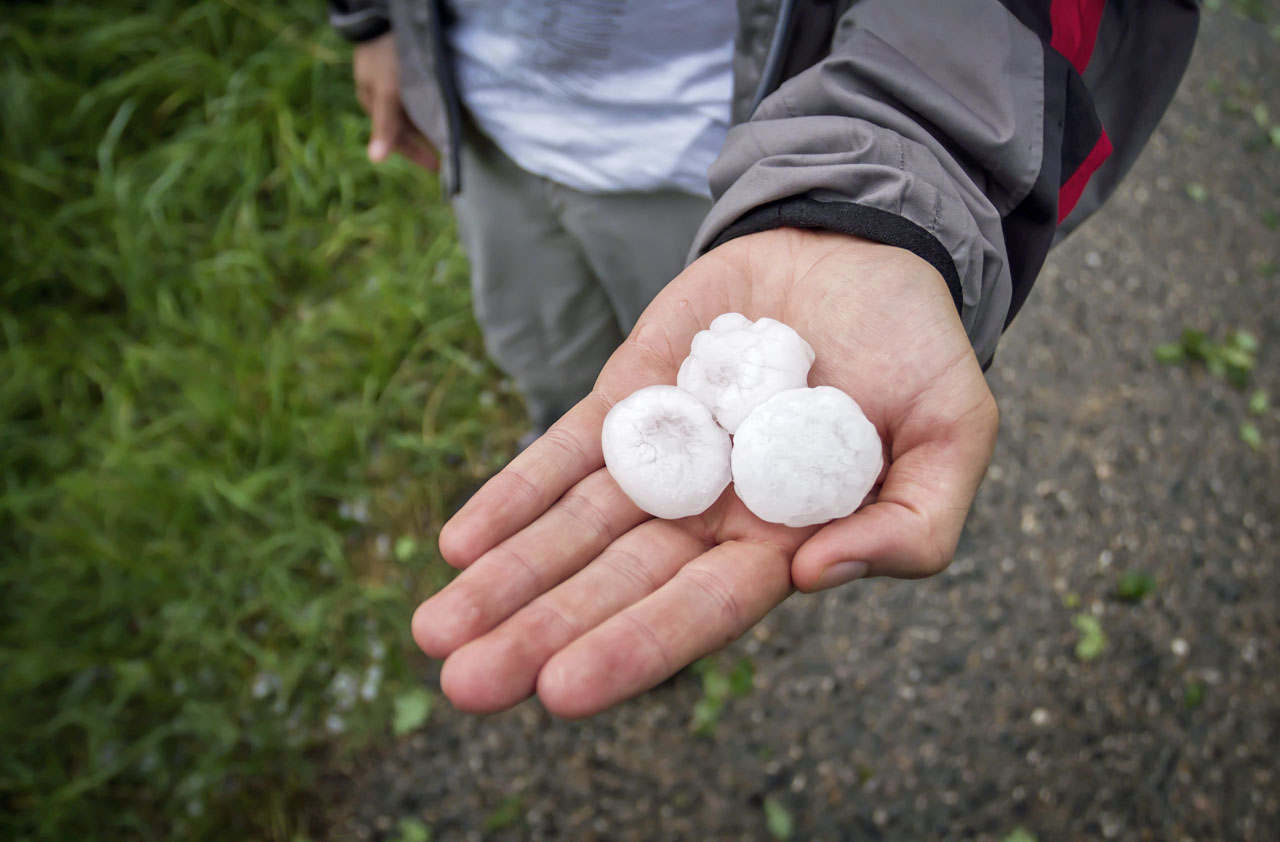
10. Arizona
Estimated Property Damage (2006-2015): $3.3 billion
Most Frequent Disasters: powerful wind, floods, heavy rain
- Most Costly Disasters: hail, frost/freeze
Weather-Related Fatalities (2006-2015): 78
Drought conditions have plagued Arizona for the past several years. As a result, the state has seen outbreaks of wildfires, including its largest on record in 2011. The Wallow Fire burned more than 500,000 acres in eastern Arizona. And in 2010 a series of severe thunderstorms produced numerous tornadoes and hail around Phoenix, causing an estimated $2 billion in damage. Finally, Arizona was hammered by sub-zero temperatures in the winter of 2013 that froze water supply pipes in the Navajo Nation.
Keep in mind that if your home is damaged, you should file a claim only if it’s several hundred dollars more than your insurance deductible. Frequent small claims can lead to a rate hike.
Profit and prosper with the best of Kiplinger's advice on investing, taxes, retirement, personal finance and much more. Delivered daily. Enter your email in the box and click Sign Me Up.
-
 Nasdaq Leads a Rocky Risk-On Rally: Stock Market Today
Nasdaq Leads a Rocky Risk-On Rally: Stock Market TodayAnother worrying bout of late-session weakness couldn't take down the main equity indexes on Wednesday.
-
 Quiz: Do You Know How to Avoid the "Medigap Trap?"
Quiz: Do You Know How to Avoid the "Medigap Trap?"Quiz Test your basic knowledge of the "Medigap Trap" in our quick quiz.
-
 5 Top Tax-Efficient Mutual Funds for Smarter Investing
5 Top Tax-Efficient Mutual Funds for Smarter InvestingMutual funds are many things, but "tax-friendly" usually isn't one of them. These are the exceptions.
-
 What to Do With Your Tax Refund: 6 Ways to Bring Growth
What to Do With Your Tax Refund: 6 Ways to Bring GrowthUse your 2024 tax refund to boost short-term or long-term financial goals by putting it in one of these six places.
-
 What Does Medicare Not Cover? Eight Things You Should Know
What Does Medicare Not Cover? Eight Things You Should KnowMedicare Part A and Part B leave gaps in your healthcare coverage. But Medicare Advantage has problems, too.
-
 15 Reasons You'll Regret an RV in Retirement
15 Reasons You'll Regret an RV in RetirementMaking Your Money Last Here's why you might regret an RV in retirement. RV-savvy retirees talk about the downsides of spending retirement in a motorhome, travel trailer, fifth wheel, or other recreational vehicle.
-
 The Six Best Places to Retire in New England
The Six Best Places to Retire in New Englandplaces to live Thinking about a move to New England for retirement? Here are the best places to land for quality of life, affordability and other criteria.
-
 The 10 Cheapest Countries to Visit
The 10 Cheapest Countries to VisitWe find the 10 cheapest countries to visit around the world. Forget inflation and set your sights on your next vacation.
-
 15 Ways to Prepare Your Home for Winter
15 Ways to Prepare Your Home for Winterhome There are many ways to prepare your home for winter, which will help keep you safe and warm and save on housing and utility costs.
-
 Six Steps to Get Lower Car Insurance Rates
Six Steps to Get Lower Car Insurance Ratesinsurance Shopping around for auto insurance may not be your idea of fun, but comparing prices for a new policy every few years — or even more often — can pay off big.
-
 How to Increase Credit Scores — Fast
How to Increase Credit Scores — FastHow to increase credit scores quickly, starting with paying down your credit card debt.
